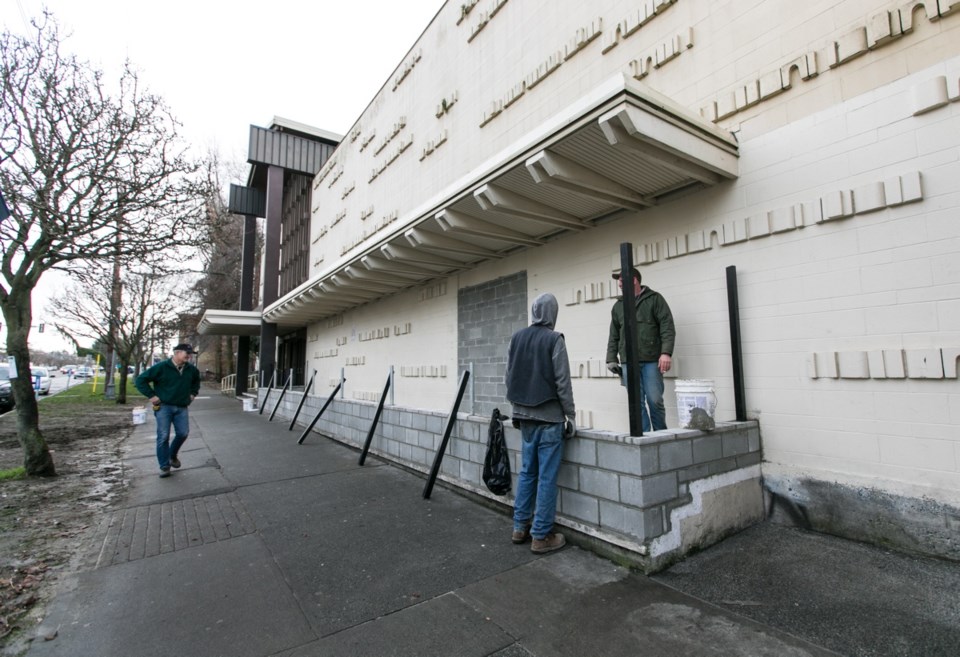Central Baptist Church has no reason to apologize for installing a wall to minimize drug activities near its entrance. It was a measure taken to improve the safety of those who attend the church, and takes nothing away from the much good the church does, including to those who have been littering the area with needles and other refuse.
The church attracted a storm of criticism after it erected a concrete-block wall topped by a black metal fence to block off a covered area near the front entrance. The area has been frequented by drug dealers, drug users and homeless campers. Garden plots will be developed in the newly enclosed space.
“The idea is to reduce crime and make it a safer space for everyone,” said Pastor Barton Priebe, as he explained why the church put up the barrier. “Police told us this is one of the most prominent areas for drugs in the city.”
The church has tried to deal with a challenging situation for years, then took a modest step to ensure people — old people, kids — coming to church didn’t have to step over needles, garbage or worse, and that church staff didn’t have to pick up after people or deal with campers with mental-health and addiction issues.
Some of those people are outdoors by choice, but many are there because they have been kicked out of shelters for being difficult or aggressive. It’s hardly the job of untrained church staff to deal with them.
Our Place, which was set up specifically to deal with people in need, has a fence and a gate and locks on its doors. You are not allowed to shoot up there; why should it be OK to shoot up at a nearby church?
Central Baptist, which has been a part of the downtown since the 1920s, has not been oblivious to the condition of street people. It has a good reputation for non-judgmental community involvement, including supporting Our Place — probably to a greater extent than some of the people criticizing it.
Until recently, Central Baptist offered breakfast to the homeless one day a month, but that ended after fighting and other disturbances destroyed the good that was being offered. Church members decided to find other ways to help those in need.
The congregation at Central Baptist has chosen to stay close to the heart of the city, but in recent years its neighbourhood has become much rougher than before. Problems with vandalism increased sharply when tent-city folk were moved into the care home next door.
The church is committed to outreach work in the community, but that work is only possible if its own members feel safe when they go to the building. If they are discouraged from attending church, the homeless and those in need will lose some of the support they need.
The church has every right to create a safe environment for its members. What about children being dropped off for Sunday school? Don’t they have a right to walk into the church without the risk of stepping on needles?
Church members arriving for Christmas service on Sunday found the new wall had been vandalized with spray paint, including the letters WWJD, which stands for “What would Jesus do?”
What would Jesus do? Well, consider this: He braided himself a whip from small cords and used it to drive the moneychangers, hucksters and hustlers out of the temple, because they were making a mockery of a place of worship. He taught love and compassion, but he also held people accountable for their actions.
We have created a big problem with inadequate mental-health and addiction services, and all have to pitch in. That doesn’t mean stores or churches have to take on the daily cleanup and management of campers.



